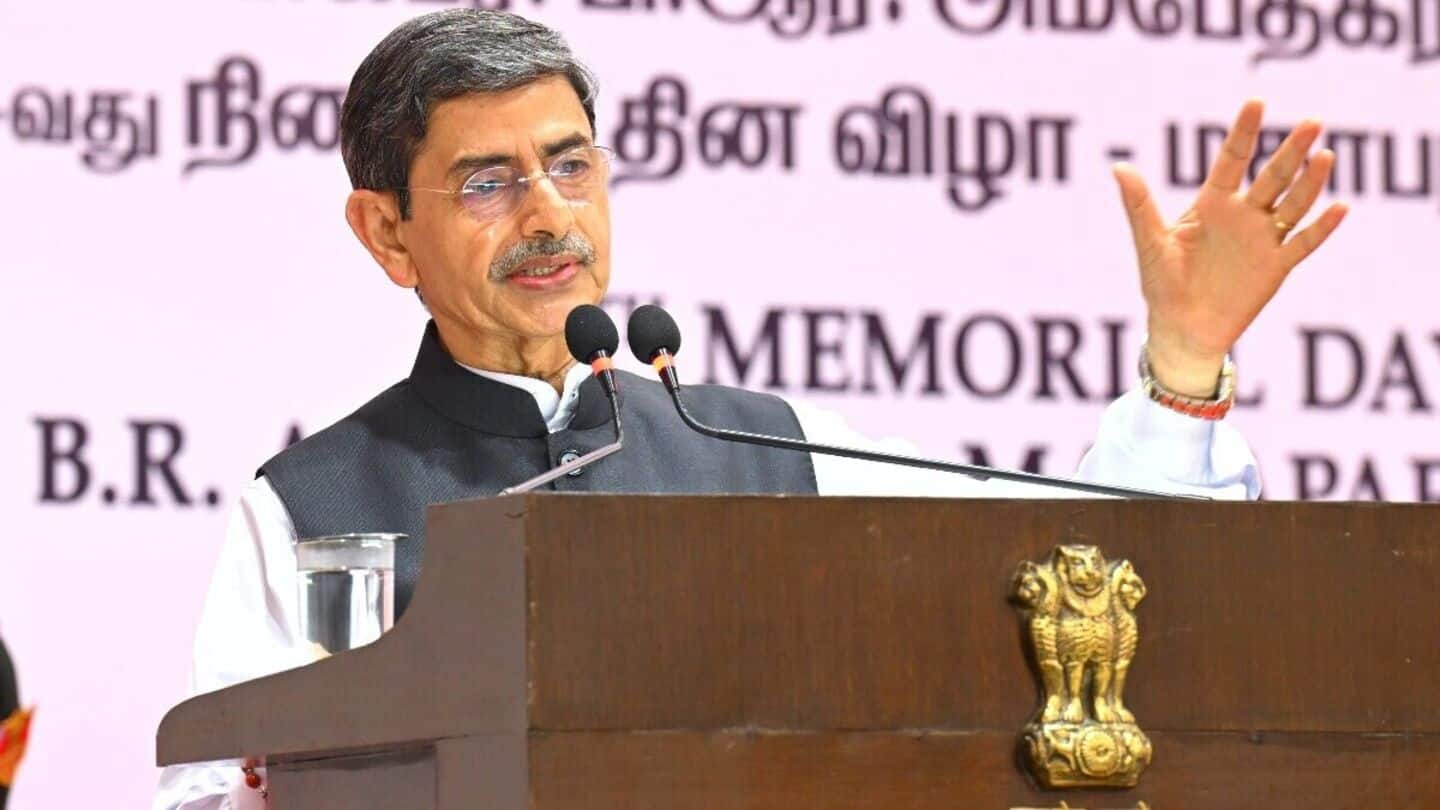
'Illegal, erroneous': SC lambasts Tamil Nadu governor for withholding bills
What's the story
The Supreme Court of India has termed Tamil Nadu Governor RN Ravi's refusal to give assent to 10 bills of the state "illegal and erroneous."
Some of these bills pending since January 2020 were re-enacted by the State Legislature but were reserved by the governor for the president's approval.
It declared that the 10 bills would be assumed to have gained the governor's assent when they were presented in the second round after being passed again by the state assembly.
Judicial rebuke
Supreme Court's criticism of governor's actions
The apex court also ruled that any action of the president on these 10 bills stands legally invalidated.
In their ruling, Justices JB Pardiwala and R Mahadevan said Ravi acted in bad faith as he had kept the bills pending for a long time before reserving them for presidential assent.
The bench said that Ravi reserved the bills even after the SC in a similar Punjab case said governors can't keep bills pending indefinitely by reserving them for the president.
Constitutional interpretation
Supreme Court clarifies Governor's role under Article 200
Justice Pardiwala clarified there's no concept of "absolute veto" or "pocket veto" under the Constitution.
Under Article 200, when presented with a bill, the governor can either grant assent, withhold assent, or reserve it for the president.
The court ruled that a bill can only be reserved for presidential consideration at first instance and not after being re-presented following state assembly approval.
"The only exception is when the bill presented in the second round is different from...first," Justice Pardiwala said.
Decision deadlines
Timelines set for governor's decisions on bills
The SC also fixed timeframes for the governor's actions under Article 200.
If a bill is withheld and reserved for presidential approval on the advice of the council of ministers, a decision has to be taken within one month.
If it is withheld or reserved against the state government's advice, the deadline is three months.
Furthermore, bills re-presented after state assembly reconsideration should get the Governor's assent within a month.
SC
Don't choke State legislatures for political reasons: SC
The Supreme Court also declared that governors cannot stifle state legislatures for political reasons, taking a very harsh stance against the current trend of governors trying to circumvent the elected governments of states.
"The Governor must be conscious to not create roadblocks or chokehold the state legislature in order to thwart and break the will of the people for political [reasons]," the court commented.
Role
'Governors must be the catalyst'
Regarding the role of the governor, the bench underlined that he must exercise his role as a friend, philosopher, and guide with dispassion and not be misled by considerations of political expediency.
"In times of conflict, he must be the harbinger of consensus and resolution, lubricating the functioning of the state machinery by his sagacity, wisdom, and not run it into a standstill. He must be the catalyst and not an inhibitor," it said.